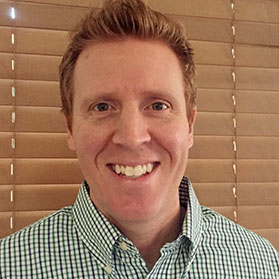By: Greg Douglas, LMHC
Suspecting that your partner is engaged in an affair is a difficult position for anyone. Thoughts flood through your mind about the possibilities of who, when, where, why, and how. So, what do you do?
Should you confront your partner immediately and demand answers? Do you keep your suspicions quiet for now and try to find evidence yourself?
Keep in mind that dealing with this issue is not black and white. There is no universally correct answer here. How can you navigate this tricky grey area with many choices and each coming with its own set of consequences? To get started, ask yourself the questions that follow.
Question #1: “Am I ready to find out the truth?”
This may seem strange to some who highly value the truth and search it out regularly. However, there are many issues to consider here. What will you do if the answer is “yes?” Do you have a plan in place to deal with the fallout emotionally, mentally, and logistically? If you are not sure about what you will do if your partner admits to an affair, you will likely be better suited to take the time to develop a plan and prepare yourself for either answer you might get. Take this time to work on yourself and try to stay open to the possibility of staying or leaving.
Question #2: “How do I go about asking my partner?”
This is also a very tricky situation. The way the question is asked/worded can make a huge difference in the way your partner chooses to answer. Here are some guidelines to follow when asking this difficult question:
- Make sure you pick a time and place when you will have your partner’s absolute attention.
- Keep your level of emotional intensity low so you will not unduly influence your partner’s response.
- In a very calm way, let you partner know that you have a very serious matter to discuss and would like to know the truth.
- Let them know that if the answer is yes it does not automatically mean the end of your relationship. However, if the answer is no and it is found out later to be true, there may be little chance of recovering.
- Then simply report your suspicions and directly ask, “Are you having an affair?”
Question #3 “How do I know if they are telling the truth?”
Realize that you may or may not be getting the truth. Our society’s view of affairs is the following: avoid getting caught, if caught deny it, if questioned say as little as possible. Our society’s secretive behavior surrounding affairs will keep many people from being honest about their actions. Keep in mind that your partner may not be telling the truth and your suspicious will not likely die with an answer of “no.”
Question #4 “What should I do if they deny the affair but I still have suspicions?”
In this case, you will want to make sure your partner knows where you stand. Let your partner know that you would like to make a commitment to having complete honesty with each other. Let them know about your suspicions, including their behavior that is cause for concern.
Look closely at their behavior and attitude towards your prompt for making the relationship more honest. Do they seem willing to make changes to current behaviors? Are they willing to acknowledge your feelings and concerns? Do they respond from a place of being supportive or do they dismiss your thoughts/feelings? The answers to these questions will help you get a feel for whether your partner has actually been honest or not.
If your partner is open to (and takes action towards) changing behaviors and working towards establishing a completely honest relationship, you are likely to improve your relationship. If they do not seem receptive, you will need to work on establishing an idea of what you are willing to accept and what you are not. By knowing your “bottom line” you will be able to better decide what steps to take next.
Dealing with the delicate issue of confronting your partner about a suspected affair is not something to be taken lightly. I would recommend speaking to a professional therapist, who specializes in Affair Recovery, about all the factors that need to be assessed before moving forward in any direction.
If you would like to learn more about dealing with affairs, Affair Recovery, or need professional help in your relationship, pleases call Douglas Counseling at (561) 207-1903 or find us online at www.DouglasCounseling.com.

